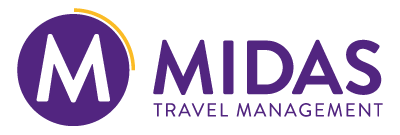This case study looks at how one investment firm saves money on their airfares. By working with their travel management company, they decreased their airfare spend by 10%.
In today’s competitive business landscape, cost optimisation is paramount for every organisation. With many trying to find the perfect balance of operational expenses and high-quality service. One significant cost element for investment firms is business travel, with airfares making up a large part of the expense.
This case study explores how a forward-thinking Travel Management Company (TMC) collaborated with an investment firm to optimise airfare costs. The result was substantial savings and improved operational efficiency.
Investment firm profile
| Business Type | Investment Firm |
| Industry Sector | Financial Services |
| Size | Mid-sized, 150+ employees |
| Headquarters | London, North America |
| Annual Air Travel Spend | £600k + |
Challenges faced
The investment firm frequently sends its employees on international and domestic business trips for meetings, client presentations, and market research. Their initial challenges include:
- Limited airfare cost control. The investment firm lacked a strategic approach to managing airfare expenses, resulting in rising costs over the years
- Lack of adoption. Travel managers often booked the first option, regardless of alternatives offered at quotation stage
- Budget overruns. Frequent overspending on airfares was putting pressure on the firm’s travel budget, affecting profitability
The solution
To address these challenges, the investment firm decided to put a plan in place with their TMC, MIDAS Travel. Well known for its expertise in offering cost-effective, premium business travel management solutions.
Key strategies implemented
- Airfare alternatives. MIDAS Travel conducted a thorough analysis of the firm’s travel history and identified opportunities to save money by switching airline carriers. The policy was amended to encourage employees to opt for more competitive flights, where feasible. This leveraged available discounts and reduced overall costs
- Advanced booking techniques. The TMC implemented a proactive booking strategy that involved early booking, flexible travel dates and the use of fare sourcing tools. This approach allowed the investment firm to take advantage of lower fares
- Key partnership agreements. MIDAS Travel negotiated preferred supplier agreements with airlines frequently used by the investment firm. The TMC also leveraged fares available via their Focus Travel Partnership. These agreements secured lower rates and improved booking flexibility
- Expense monitoring and reporting. Expense tracking and detailed reporting were established, allowing the investment firm to maintain full visibility into travel expenses. This empowered them to make data-driven decisions and adjust travel policies as needed
- Travel policy optimisation. The TMC worked closely with the investment firm to maximise their travel policy. This included setting clear guidelines on class of travel, booking lead times, and expense limits, ensuring cost-efficient travel practices
Results achieved
The collaboration between the investment firm and MIDAS Travel yielded remarkable results;
- Cost savings. Within a year, the investment firm realised a 10% reduction in airfares, resulting in approximately £60,000 in savings
- Improved efficiency. The advanced booking process reduced administrative overheads and saved time, for employees and the finance department
- Enhanced employee experience. With access to a wider range of airlines and improved booking flexibility, employees reported higher satisfaction with their travel experiences
- Sustainable travel practices. By encouraging longer trips and optimising booking strategies, the firm reduced its carbon footprint, aligning with corporate sustainability goals
Conclusion
The investment firm’s collaboration with MIDAS Travel exemplifies the positive impact that a strategic approach to airfare cost management can have on an organisation’s bottom line. The firm achieved substantial savings whilst maintaining quality and efficiency in their business travel operations. The success was a result of their cost-saving strategies, optimising their travel policy and leveraging the expertise of a TMC.
This case study underscores the importance of proactive cost control and strategic partnerships in achieving financial success in the investment industry.
To discuss your investment firm’s travel programme, please get in touch.
USEFUL LINKS
- What is a Travel Management Company and do you need one? – MIDAS Travel Blog
- What we do: Core Services – MIDAS Travel Website
- MIDAS Travel listed in top 40 UK Travel Management Companies – BTN Group

